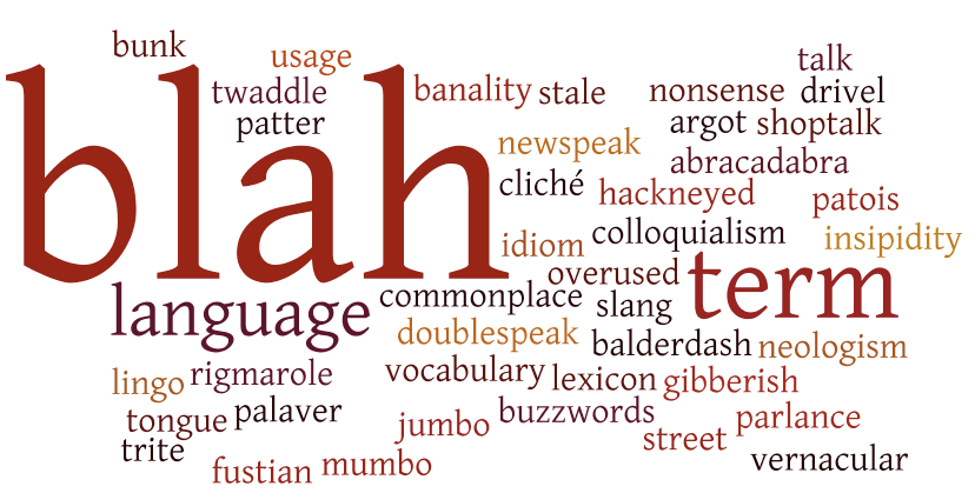“Trust me, I’m an expert.”
That declaration doesn’t get you far in today’s divided world, where many voices compete for attention and influence.
How can you write with authority and earn readers’ trust without falling back on the old “I’m an expert” line? It depends on who you are writing for.
People within your field, such as law or medicine, assess your expertise by examining your experience, credentials, publications, and past interactions they have had with you.
For readers outside your field (i.e., members of the general public), you need to communicate your expertise without sounding pompous and self-important. No one likes a blowhard.
The traditional markers of expertise, like credentials and professional experiences, may not be enough for a general audience. People may look for evidence of your personal experiences and markers of social proof—the fact that other people they know respect your opinions.
Expertise with impact creates influence
But don’t get hung up on showing up as an expert, because that’s only half the battle. The people with the most professional expertise in a topic aren’t always the most influential voices in a field.
You want people to pay attention to what you have to say—you want to influence their thoughts or behaviors. That requires more than expertise.
For example, to learn more about the financial melt-down of 2008, I read Michael Lewis’ book The Big Short. He wasn’t there in the trenches, so didn’t have the first-hand experience. But he sure does his research and explains things beautifully.
Authors like Malcolm Gladwell and Susan Cain have a great deal of authority on subjects for the general audience because they 1) research them thoroughly, and 2) communicate so well. They have earned authority in their subject matters.
Expertise and authority are different things.
Untangling authority and expertise
Let’s start with simple definitions.
Expertise, for the purpose of writing or presenting, is that combination of the things you know and the things you know how to do. (We often forget about that second part when assessing our own expertise.)
Authority is your ability to influence others’ thoughts or behaviors.
You can expand your expertise by learning or doing. It’s within your own control.
Your reader controls how much authority you have over them. Your task is to present your expertise and your ideas in a way that makes sense to people who may not be familiar with your area.
If you work in law, medicine, technology, or other domains with clear boundaries between insiders and outsiders, look carefully at the audience you hope to reach, so you can build authority with them.
If you want to influence others, it’s not enough to be super-knowledgeable. Focus on connecting and communicating, and your expertise will shine through.
The ability to bring clarity to complex subjects confers authority.
Your Authority Checklist
To communicate with authority, both inside and outside the group of people who know you, here’s a checklist of things to do as you write:
Focus on the audience: Who are you speaking to or writing for?
Understand your audience and what they need from you. Are you writing for people who know you or your profession? Or are you hoping to cast a wider net with your words? Why will they listen to you, or how can you get their attention?
Assemble a set of authority proof points.
Some people are most influenced by social proof, others by boots-on-the-ground experience, still others by numbers. I like to think of us each having a set of “authority building blocks” that we can assemble and tailor for each audience.
Expand your authority beyond your expertise
Don’t rely on your domain expertise alone. Consider adding stories or metaphors related to subjects that are familiar to readers. Is there a personal story you could tell that would bring your expertise or experiences to life (while avoiding name-dropping)?
Communicate with clarity
No matter your audience, do the work to make your writing clear and engaging. The smarter you make your readers feel, the more authority they will grant you.
About the Guest Author
Anne Janzer is an enthusiastic WordRake user, an award-winning author, armchair cognitive science geek, nonfiction author coach, marketing practitioner, and blogger. She’s on a mission to help people spread important ideas through writing. As a professional writer, she has worked with more than one hundred technology companies, writing in the voice of countless brands and corporate executives. Her books include Get the Word Out, Writing to Be Understood, The Writer’s Process, The Workplace Writer’s Process, and Subscription Marketing, and have been published in Japanese, Korean, and Russian, and adopted by college writing courses. Find her blogs and more on AnneJanzer.com.









